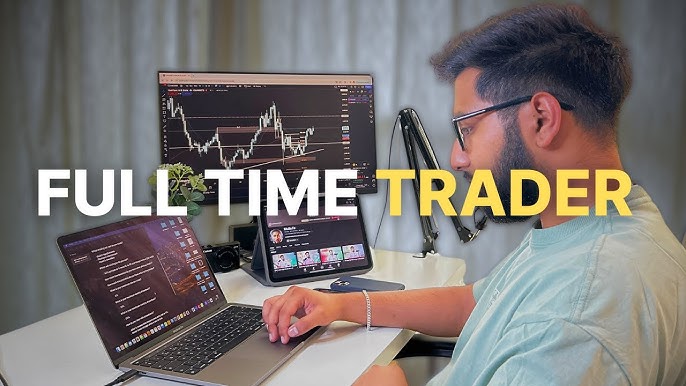Transitioning into full-time trading is a significant decision that many investors face. The shift requires careful planning, analysis, and confidence. It is not just about making money in the markets—it’s about sustaining that income over time.
Trading as a primary source of income comes with both flexibility and risk, so knowing when it is the right moment to make the switch is essential for success.
Evaluate Your Financial Security

Before even thinking about trading full-time, one needs to ensure financial stability. Do you have an emergency fund to cover living expenses if things don’t go as planned? Traders should avoid being under pressure to make money immediately.
An emergency fund or alternative sources of income can help cushion the transition. Trading involves risks, and having a financial safety net will allow for clearer decision-making.
Confirm Consistent Profitability
Anyone can have a few lucky months, but can profits be sustained over six months or a year? This means more than just making trades that win. It means building a strategy that works under various market conditions and produces steady results.
For instance, on a platform like Binomo, traders can test strategies across various market conditions. All they need is Binomo login to their account, which provides them access to demo accounts for practice, helping them build confidence. When transitioning to live trading, they are better equipped to approach full-time trading with more certainty.
Assess Personal Readiness
Ask yourself whether the mindset and discipline are in place for full-time trading. Are you able to manage stress? Can you handle the emotional ups and downs? Trading requires mental fortitude, and those unprepared for that aspect of the job can easily burn out.
Additionally, time management becomes vital. When trading becomes the primary occupation, planning becomes essential. One needs to organize their trading day, including when to research, trade, and take breaks. Rushed or emotional decisions often result in costly mistakes.
Analyze Market Knowledge and Skills

The shift to full-time trading means competing with some of the sharpest minds in finance. Are the necessary skills in place to trade alongside professionals? Day trading requires in-depth knowledge of market trends, technical analysis, and sometimes even economic data. Being skilled with platforms, charting tools, and other resources is non-negotiable.
It is also important to constantly improve. Markets evolve, and traders must evolve with them. Having the skills to adapt is crucial. Those who are serious about making full-time trading their career should be committed to learning new strategies, keeping up with news, and adjusting to new trading platforms or technology.
Determine Risk Management Proficiency

Can risks be managed in a way that ensures survival during losing streaks? Traders must understand position sizing, stop-loss orders, and other techniques that minimize exposure.
A well-planned risk management strategy should limit the downside while allowing room for growth. The best traders know that survival during tough times is often what separates successful full-time traders from those who don’t make it.
Building a Routine
Switching to full-time trading involves more than just financial and psychological preparation. Traders also need to establish a routine. A regular schedule should be maintained, with clear starting and ending times for trading sessions. Keeping this structure in place can prevent fatigue and help maintain focus.
New traders often think full-time trading means constant action. But experienced professionals know when to take breaks and avoid markets that aren’t offering good opportunities. Building a routine around discipline and structure will help avoid burnout and keep performance consistent.
Conclusion

Transitioning to full-time trading is not a decision to make lightly. Financial security, consistent profitability, personal readiness, market skills, and risk management all need to be in place before making the jump. While trading full-time can offer freedom and the potential for substantial earnings, it requires discipline, emotional control, and a well-thought-out plan.
For those who feel they are ready, the rewards can be significant. However, without the proper preparation, it can be a tough road to navigate.
 Alternative News
Alternative News




